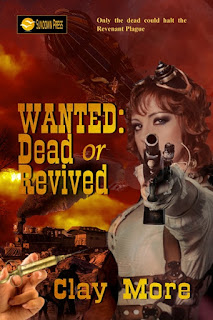Post by Gayle M. Irwin
This month is
National
Adopt-a-Shelter Dog Month, celebrated and recognized around the country by
animal shelter and rescue groups. Many such organizations reduce their adoption
fees or at least take the opportunity in October to bring greater awareness to the plight
of animals in need of loving homes. While touring
Best Friends Animal Society & Sanctuary
around this time last year, I learned the startling statistic of how many
animals die in kill-shelters throughout this country. Even though I was aware
of the
annual
statistic (3-4 million), the tour guide bravely broke it down to how many
every day: 9,000.
NINE THOUSAND dogs, cats, and other creatures
(bunnies, guinea pigs, birds)
DIE EVERY DAY in kill shelters. Yet,
Americans shell out billions of dollars every year – in fact, more than
$55
billion! –
for their pets: food, vet
bills, treats, toys, beds, clothing... Americans who love their pets
REALLY
LOVE their pets to spend billions of dollars every year on them. That's
so cool! Yet, we let 9,000 companion animals (most of whom are quite healthy) die every day in kill-shelters. That's very sad.
It's estimated that only 25% of adoptable pets in shelters and rescue
organizations find new homes.

I write inspirational pet stories for children and adults.
Pet rescue is my passion. All of my animals are adopted, and I assist my local
humane society and regional pet rescue organizations every year through various
means: events, monetary and supply donations, transportation, home visits – I
even donate a percentage of my book sales to these groups. Why should 9,000 wonderful animals die every day because people won’t adopt? Such a staggering
statistic boggles my mind.
Many people believe that an animal at a shelter has a major
problem or is unfit for a home. Why do we think an animal is LESS THAN because
it's in rescue or a shelter? The fact is the #1 reason why animals are at those
places is because of their human, not because of the animal; the #1 reason
people give for giving up their pet is “I'm moving.” Yet, they move with their
child, their car, their furniture … and leave their pet behind.

In 2008, my husband and I adopted a nearly-ten-year-old cocker spaniel named Cody. He was an intact male, likely used for breeding then tossed away after his "services" were no longer viable. Although he was a purebred dog, his chances of being adopted were slim due to his age. Cody lived with us nearly eight years, crossing the Rainbow Bridge in January 2016 at nearly 18 years of age. We never expected him to live that long; we were very willing to give him his "retirement home" for a couple of years. Perhaps that "second chance," a home with great love and care, kept him going much longer. Part of that love and care comes in the form of stories. Cody has his own book, by which I teach children to appreciate not just older pets, but the nature around them, encouraging them to get outdoors with their family and their pets. Cody's legacy lives on in
Cody's Cabin: Life in a Pine Forest and in
Sage Finds Friends, a children's picture book about friendship, confidence, and trust. Cody traveled with me to several library, school, and bookstore visits, impacting children just like my blind dog, Sage, did; Sage was also a former animal shelter resident.

I am ready to add another dog to our home, and you can bet I'll adopt from a shelter or rescue. I've done my research to know what breed would best fit into our home that has two older cats and another aging dog -- as well as aging humans. I'm hoping by Christmas to have this new furry friend in our household.
Best
Friends has two significant campaigns: No Kill and No More Homeless Pets.
Since October is National Adopt-a-Shelter Dog Month, I think it's a good time
to get on the #NoMoreHomelessPets/#NoKill bandwagon and encourage dog adoption.
So, as I did last year, this October I'm taking the stage with blogs and
Facebook posts and Twitter tweets, and asking my friends to join in. Tout
however you can: #NoKill! #NoMoreHomelessPets! #AdoptaDog! #AdoptDon'tShop! I’m
blessed to have at least three opportunities this month to join with local
independent bookstores and animal shelters in my area as we partner for events
that promote dog adoption and offer opportunity to sell my books at these happenings.
As writers, we can weave our passions into our work. Whether
it’s animals, child abuse, domestic violence, history or space travel, we can
incorporate our passions into our stories.
The dogs' stories of which I've played a part are featured in my current writings. I'm working on two books that involve
dog rescue: an educational/awareness book about rescue organizations for
children and families – that book idea sprouted from my encounter with Jazmine, a dog I helped transport to her new home; and a
romance story involving dog rescue (I imagine the hero of my story will rescue
the heroine, or vice-verse!). Again, I'm weaving my writing with my passion for
pets, and I'm looking forward to seeing how these stories come together in the
near future. I also write a pet column each month for two publications, and I’m
able to share my thoughts about pet adoption and pet rescue in those compositions. I feel blessed to work in this niche, to weave my passion for pets into my writings.
How about you? What is your writing niche? Do you weave something you’re passionate about into your work?










